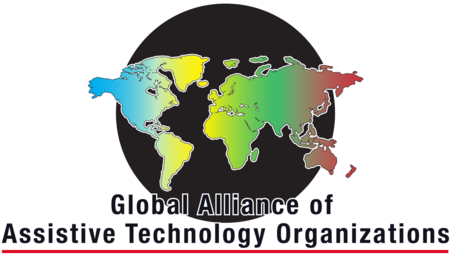Evidence of Assistive Technology Outcomes & Impact
An International Summit Organised by GAATO and RESNA
as part of the 2020 RESNA Conference (USA), July 7-10, 2020

Introduction
The field of assistive technology (AT) has often reflected on the outcomes of professional interventions or technology adoption by persons with disabilities or older adults. Tools have been developed and validated by the AT research community that help to collect evidence of measurable change in the condition or perceived condition of the individual. Outcome assessment tells us whether a process has led to a certain goal and is very often also used to represent the quality of that process.
Impact on the other hand seems to refer to a much broader effect, often difficult to pin down, to predict, or to measure. According some authors “impact can be conceptualised as the long term effect of an outcome” [Harding 2014]. In the field of assistive technology we can think about “empowerment”, “participation”, “self-fulfilment”.
Both outcome measurement and impact measurement can use qualitative and quantitative methods, either at individual or collective level.
For policymaking bodies at all levels data about both outcome and impact are relevant. They can inform decision making about investments in services and training, but they also serve to direct or measure the fulfilment of high level policy goals.
Globally fostering AT is meeting increasing interest from policymakers, not only as an answer to the increased demand for independence of individuals, but also as a strategy to reach higher level policy goals, such as “building inclusive societies”, “reaching sustainable development goals”, “respect for human rights”, “economic independence and full employment”, “wellbeing”, etc.
In this international session we would like to discuss evidence of AT outcomes and impact and the relationship between the two research objectives. We would like to do this from an international perspective, thus feeding the global discussion on access to AT as a human right and the discussion within the WHO and the GATE community of the best possible strategies to advance access to AT and AT services worldwide.
Call for contributions
Following an introductory session with invited speakers, there will be two one-hour time slots for contributions from researchers and practitioners worldwide. In case you are interested in presenting in those sessions you are
- warmly invited to submit by February 20th, 2020, a one-page abstract to the scientific committee coordinated by GAATO and RESNA for this specific event. Following acceptance (early March), you will be
- invited to submit a short paper following the RESNA guidelines for short papers by March 30th.
https://www.resna.org/news-events/annual-meeting/scientific-papers
This short paper will be peer reviewed and published in the conference proceedings.
Possible themes: Quantitative and qualitative AT Outcome and Impact studies, International comparative studies, Case reports, Conceptual papers, Methodologies, Impact on policy making, other contributions relevant to the topic.
It is the aim of the committee to make this a truly global event and therefore authors from under-resourced countries are warmly invited to consider presenting.
The deadline for presenting a one-page abstract is: February 20th, 2020.
Send the one-page abstract to Evert-Jan Hoogerwerf (evertjanhoogerwerf@gmail.com) and/or Roger O. Smith (smithro@uwm.edu).
There is no template, but the abstract must include:
- Author(s) details (Name, Affiliation, e-mail),
- Title,
- Short description of the content,
- Relevance for the international session.
Scientific committee
Mary Ellen Buning, Silvana Contepomi, Stephanie Vasquez Gabela, DP Gayton, Evert-Jan Hoogerwerf, Jim Lenker, Perry Loh, Natasha Layton, MacMacLachlan, Inhyuk Moon, Jonathan L Pearlman, Marcia Scherer, Emma Smith, Roger O Smith, Luc de Witte
Relevant information
The RESNA conference will take place in Arlington (Virginia), Washington Metropolitan Area, USA from the th to the 10th of July 2020. The international event is scheduled for the 9th of July.
Being part of the full conference programme, presenters or attendees of this session will need to register for the RESNA conference via the website. Lodging and transportation suggestions are also available on the RESNA website.
Website: https://www.resna.org/conference
Seeking travel sponsors
The GAATO/RESNA International Summit on Evidence of Assistive Technology Outcomes and Impact desires to have participants representingall regions of the globe.GAATO/RESNA understands that low and middle incomeprograms and areas may not have funds to attend, so we seek sponsors for supporting travel. Please contact Evert-Jan Hoogerwerf (evertjanhoogerwerf@gmail.com) and/or Roger O. Smith (smithro@uwm.edu if you are interested in sponsoring presenters and attendees from low and middle income programs and areas.
[Harding 2014] Harding, Andrew (2014) What is the difference between an impact and an outcome? Impact is the longer term effect of an outcome. Impact of Social Sciences Blog (27 Oct 2014). Website.
